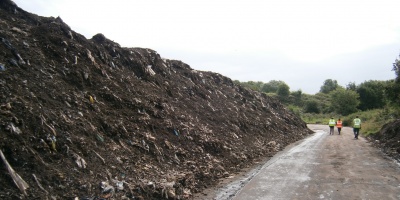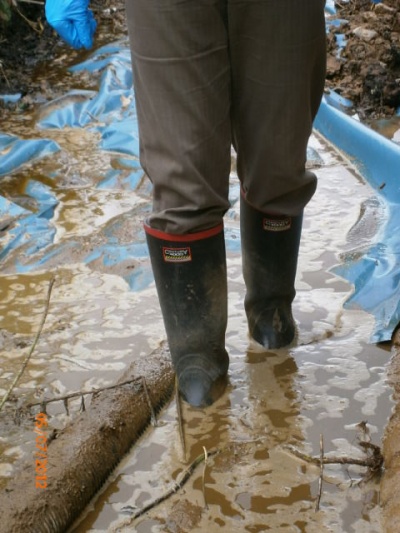Waste operator may need to pay £1.6m for waste crime

The hearing follows on from a previous court appearance, where Powell was sentenced to 12 months imprisonment (suspended for 12 months), ordered to carry out 250 hours of unpaid work, and was disqualified for being a director for five years after being found guilty of breaching the conditions of the company’s environmental permit and storing waste in a manner likely to cause harm to human health or the environment.
The case largely centred on the fact that compost leachate was found to be leaking from storage areas at the site onto the surrounding land, entering ground waters and surface water.
Two other Directors have also been found guilty of breaching the permit. Jonathan Westwood (who was sentenced to 32 weeks imprisonment – suspended for 12 months – 150 hours unpaid work and disqualified for three years) and Robert Baynton (who was sentenced to 16 weeks imprisonment – suspended for 12 months and disqualified for two years) pleaded guilty to the charge in December 2014 and Westwood was ordered by Cardiff Crown Court to pay £100,000 compensation in July this year.
National Resource Wales (NRW), in conjunction with Gwent Police, has now presented a Proceeds of Crime Act to Cardiff Crown Court in an attempt to confiscate money that they say should have been used to comply with the environmental permit, but was instead ‘went into the pockets of the directors themselves’.
There is also a substantial claim for compensation due to the taxpayer-funded removal of pollution at the company’s site in Caerwent. The total cost of which was in excess of £600,000.
Background to offences
In 2010 the company, which operated under an environmental permit from NRW’s predecessor Environment Agency Wales (EAW), was prosecuted for causing water pollution. The company pleaded guilty and was fined for this offence.
During routine inspections in 2012, officers visiting the site found evidence of compost leachate, which can contain harmful levels of pathogens including E. coli and salmonella, leaking from storage areas at the site onto the surrounding land.

The company’s site was situated close to the ‘Great Spring’, an aquifer that EAW considered ‘particularly sensitive’ as it has a drinking water abstraction point.
Further site visits were carried out and found that leachate continued to seep through the walls of buildings on site and onto the ground.
As a result of this, EAW suspended the company’s permit until the agency was happy that it had made significant improvements to its infrastructure.
The company ceased trading in October 2012 and NRW says that Powell, the remaining Director, left the site with approximately 20,000 tonnes of composting waste remaining.
Due to fears that the leachate could continue to escape the site, EAW removed around 4,000 tonnes of the most hazardous waste. NRW is now considering options to remove the remaining waste, as at estimated cost of more than £1.6 million.
‘Safety of local environment an community must be ensured’
Jon Goldsworthy, from Natural Resources Wales, said: “The actions taken by the company and its directors in this case caused serious pollution to the nearby environment, as well as placing the health of local people at risk.
“In 2012, the site was thought to be the worst performing site in England and Wales in terms of its failure to comply with the conditions in its permit.
“In addition to this, the poor condition in which the site was left meant that that the taxpayer had to pick up the bill to remove waste from the site – money that could have been directed to other front line services that people rely on.
“We will always try to work with companies to make sure they comply with the conditions in their permit, but in cases like this, we have to step in and take legal action to ensure the safety of the local environment and community.”
Find out more about the Proceeds of Crime Act 2002.






